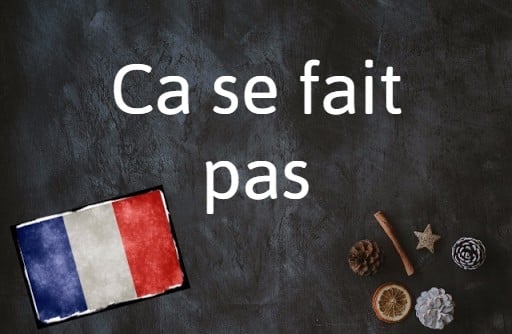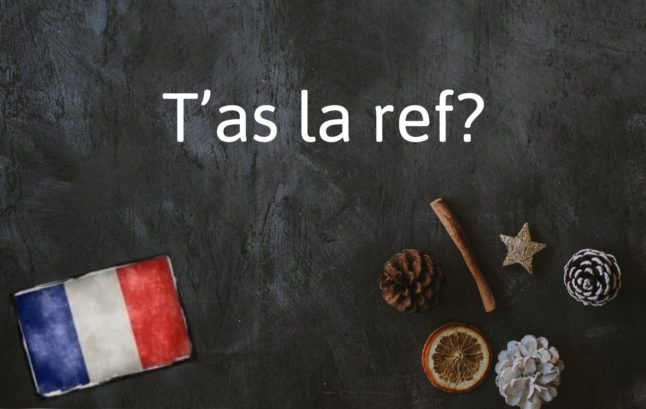Why do I need to know ça se fait pas?
There are many rules of etiquette in France that differ from other cultures, and learning to recognise this phrase will help you to know when you’ve got something wrong.
What does it mean?
Technically it should be ça ne se fait pas, but since this expression is mostly used in spoken conversation, the ne is usually omitted.
Literally “that isn’t done”, ça se fait pas can be translated as “it isn’t the done thing”. It’s used when referring to an action that goes against how the speaker feels people ought to act or when you are being scolded for getting a piece of French etiquette wrong.
It can be a lot stronger than the direct English translation, however, referring to something that’s deemed unacceptable or incredibly rude. Think of someone incredulously saying, “You can’t do that!”, or “That’s not on.”
While ça se fait pas is the negative form, it can also be used in the positive by dropping the final word. For example, in the sentence, ça se fait de moins en moins (It’s less and less common).
Or in the expression, Comment ça se fait ? (How come?)
Use it like this
On ne peut pas juste partir sans payer, ça se fait pas – We can’t just leave without paying, it’s not right.
Mon coloc a mangé mes céréales sans me le demander. Ca se fait pas, quoi ! – My flatmate ate my cereal without asking. I mean, that’s unacceptable!
Qui compare sa meuf à son ex ? Ca se fait pas ! – Who compares their girl to their ex? That’s not on!



 Please whitelist us to continue reading.
Please whitelist us to continue reading.
Member comments